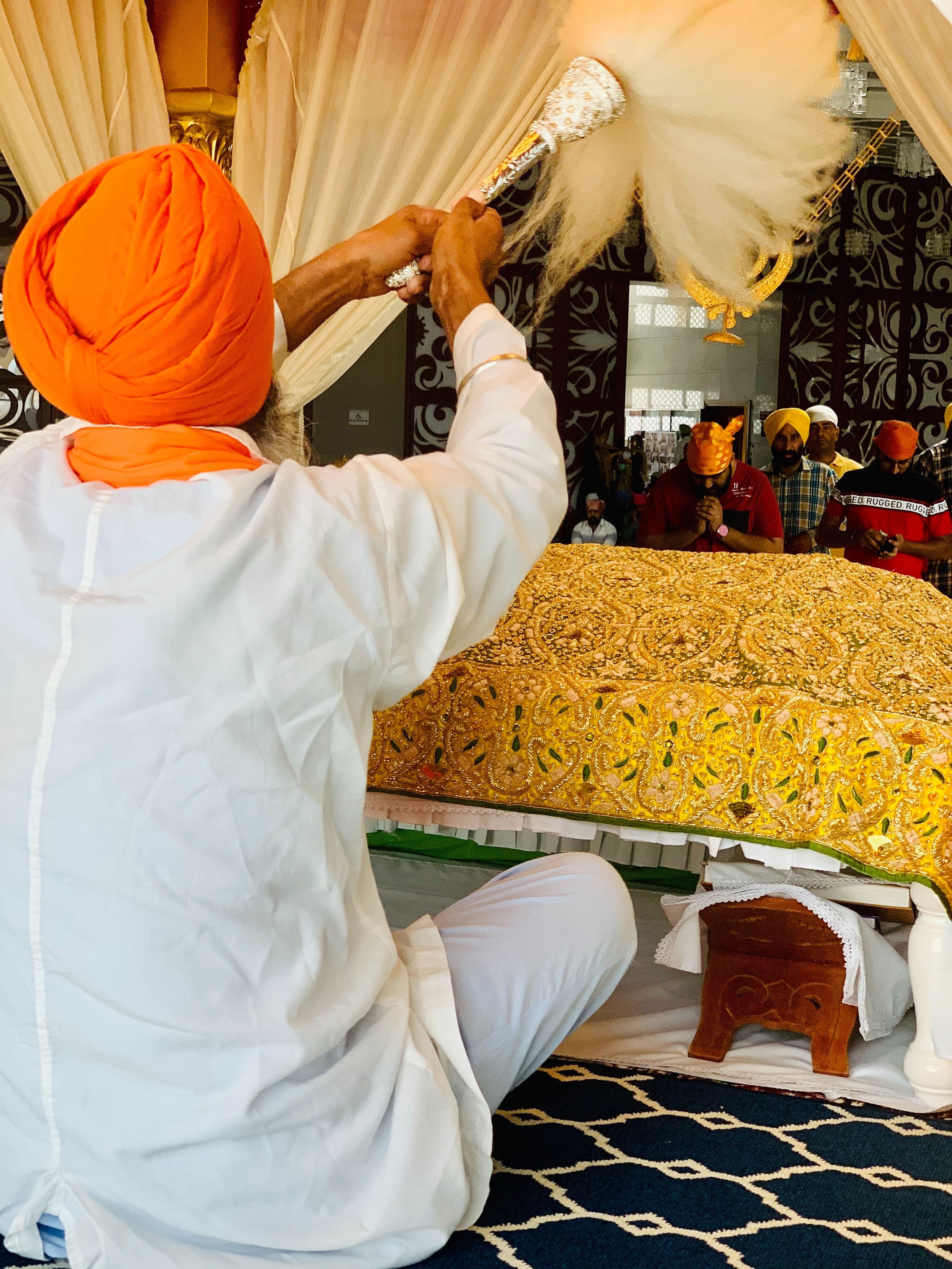Birmingham & Sandwell Vaisakhi Nagar Kirtan 2024
Sunday 19th May 2024 - 9:30AM to 2.15PM
Birmingham & Sandwell Vaisakhi 2024 Celebrations Announcement
Up Coming Event 2024
Gurpurab Nagar Kirtan May 2024
Details to be confirmed

Council of Sikh Gurdwaras Birmingham
Promoting Sikh Values and Ekta within the Panth Across Birmingham.
We work to support and promote the Sikh faith, culture, and values, as well as foster unity and cooperation among the Gurudwara’s and Sikh community in the region.
Vaisakh - The Joyous month
In the joyous month of Vaisakh, how can the inner self find consolation and contentment If, like a wife separated from her husband, we discard and reject the love of our Beloved Lord? Forgetting our True Companion, we allow the termites of mammon to engulf and consume us Yet, in this life, all our relationships and possessions are transitory; Only He is Everlasting In our abject suffering, we are dying a spiritual death, caught in the entanglements of falsehood Without His Name in our heart, we lose out in this life and the life hereafter Forgetting God, we remain restless and dissatisfied; without Him there is no source of fulfillment
Only those who take the shelter of His feet are able to find inner purity and peace. Says Nanak, 'Oh Lord, this is my humble prayer: please unite me to Yourself. Vaisakh becomes truly beautiful and joyful, when we find You through the company of kindled souls.'
The Significance of Amrit
In Sikhi, Amrit is a special sanctified nectar that plays a crucial role in the initiation ceremony called "Amrit Sanchar" or "Khande di Pahul." The ceremony is meant to induct a Sikh into the Khalsa, the community of baptized Sikhs who have committed themselves to live by the highest spiritual and moral standards.
Guru Gobind Singh Ji introduced the code of conduct for the Khalsa, which included maintaining the Five K's (Kesh, Kara, Kachera, Kirpan, and Kangha) and adhering to strict moral and spiritual principles. The initiation ceremony, known as Amrit Sanchar, became a significant part of Sikh tradition and remains so to this day.
The creation of the Khalsa and the Amrit ceremony in 1699 by Guru Gobind Singh Ji marked a pivotal moment in Sikh history, as it established a distinct identity for the Sikh community and reinforced their commitment to the core values and principles of the Sikh faith.
Who we are
The Council of Sikh Gurdwaras in Birmingham is an organisation that serves the interests of the Sikh community and Gurdwaras in Birmingham, United Kingdom.
We work to support and promote the Sikh faith, culture, and values, as well as foster unity and cooperation among the Gurdwaras and Sikh community in the region.
Who are the Sikhs?
Sikhism is a monotheistic religion founded in the 15th century by Guru Nanak Dev Ji in the Punjab region of South Asia. While there are numerous teachings and values associated with Sikhism, three key principles are particularly emphasized:
Naam Japna (Remembering God): Sikhs are encouraged to remember and meditate on God's name (Waheguru) throughout their daily lives. This constant remembrance helps Sikhs to develop a deeper connection with the Divine and cultivate spiritual awareness.
Kirat Karni (Honest Living): Sikhs believe in living an honest and ethical life, earning a livelihood through honest means, and treating others fairly. They are encouraged to work hard and share the fruits of their labor with others, promoting a sense of social responsibility.
Vand Chakna (Sharing with Others): This principle emphasizes the importance of sharing one's resources, including time and wealth, with the less fortunate. Sikhs are encouraged to practice generosity and engage in selfless service (seva) for the betterment of their communities and humanity as a whole.
These three principles form the foundation of Sikh beliefs and guide their daily actions and interactions.







